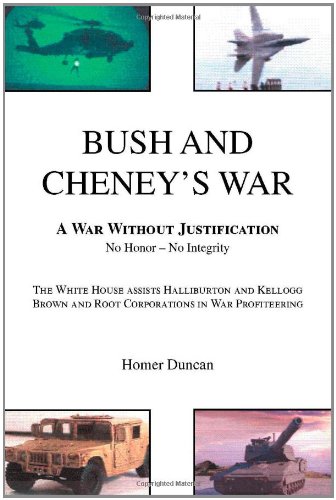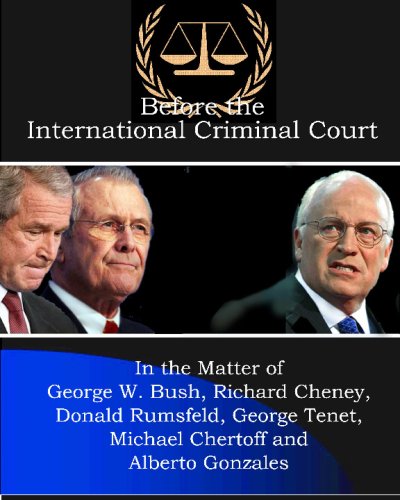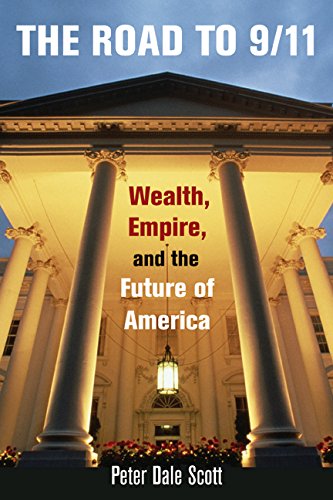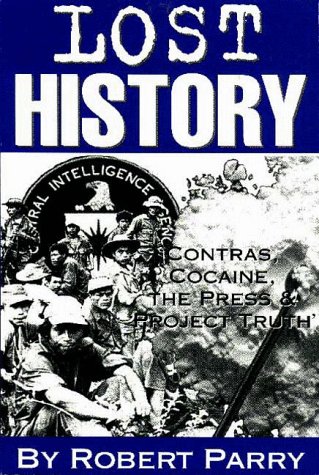Recently by Robert Parry: Why Journalist Gary Webb Died
If the United States had a functioning criminal justice system for the powerful – not just for run-of-the-mill offenders – former Vice President Dick Cheney would have convicted himself and some of his Bush administration colleagues with his comments on ABC’s “This Week.”
On Sunday, Cheney pronounced himself “a big supporter of waterboarding,” a near-drowning technique that has been regarded as torture back to the Spanish Inquisition and that has long been treated by U.S. authorities as a serious war crime, such as when Japanese commanders were prosecuted for using it on American prisoners during World War II.
Cheney was unrepentant about his support for the technique. He answered with an emphatic "yes" when asked if he had opposed the Bush administration’s decision to suspend the use of waterboarding – after it was employed against three “high-value detainees” sometimes in repetitive sequences. He added that waterboarding should still be “on the table” today.
 Secrecy & Privilege: R...
Best Price: $2.99
Buy New $12.41
(as of 07:55 UTC - Details)
Secrecy & Privilege: R...
Best Price: $2.99
Buy New $12.41
(as of 07:55 UTC - Details)
Cheney then went further. Speaking with a sense of impunity, he casually negated a key line of defense that senior Bush officials had hidden behind for years – that the brutal interrogations were approved by independent Justice Department legal experts who thus gave the administration a legitimate reason to believe the actions were within the law.
However, on Sunday, Cheney acknowledged that the White House had told the Justice Department lawyers what legal opinions to render. In other words, the opinions amounted to ordered-up lawyering to permit the administration to do whatever it wanted.
 Bush and Cheney’...
Best Price: $50.00
Buy New $22.50
(as of 01:45 UTC - Details)
Bush and Cheney’...
Best Price: $50.00
Buy New $22.50
(as of 01:45 UTC - Details)
In responding to a question about why he had so aggressively attacked President Barack Obama’s counter-terrorism policies, Cheney explained that he had been concerned about the new administration prosecuting some CIA operatives who had handled the interrogations and “disbarring lawyers with the Justice Department who had helped us put those policies together. …
“I thought it was important for some senior person in the administration to stand up and defend those people who’d done what we asked them to do.”
Cheney’s comment about the Justice lawyers who had “done what we asked them to do” was an apparent reference to John Yoo and his boss, Jay Bybee, at the Office of Legal Counsel (OLC), a powerful agency that advises the President on the limits of his power.
In 2002, Yoo – while working closely with White House officials – drafted legal memos that permitted waterboarding and other brutal techniques by narrowly defining torture. He also authored legal opinions that asserted virtual dictatorial powers for a President during war, even one as vaguely defined as the “war on terror.” Yoo’s key memos were then signed by Bybee.
 Before the Internation...
Buy New $19.95
(as of 02:50 UTC - Details)
Before the Internation...
Buy New $19.95
(as of 02:50 UTC - Details)
In 2003, after Yoo left to be a law professor at the University of California at Berkeley and Bybee was elevated to a federal appeals court judgeship in San Francisco, their successors withdrew the memos because of the sloppy scholarship. However, in 2005, President George W. Bush appointed a new acting chief of the OLC, Steven Bradbury, who restored many of the Yoo-Bybee opinions.
 The Road to 9/11: Weal...
Best Price: $4.42
Buy New $19.52
(as of 12:30 UTC - Details)
The Road to 9/11: Weal...
Best Price: $4.42
Buy New $19.52
(as of 12:30 UTC - Details)
Legal Fig Leaf
In the years that followed, Bush administration officials repeatedly cited the Yoo-Bybee-Bradbury legal guidance when insisting that the “enhanced interrogation” of “war on terror” detainees – as well as prisoners from the Iraq and Afghan wars – did not cross the line into torture.
In essence, the Bush-Cheney defense was that the OLC lawyers offered honest opinions and that everyone from the President and Vice President, who approved use of the interrogation techniques, down to the CIA interrogators, who conducted the torture, operated in good faith.
If, however, that narrative proved to be false – if the lawyers had colluded with the policymakers to create legal excuses for criminal acts – then the Bush-Cheney defense would collapse. Rather than diligent lawyers providing professional advice, the picture would be of Mob consiglieres counseling crime bosses how to evade the law.
Though Bush administration defenders have long denied that the legal opinions were cooked, the evidence has long supported the conspiratorial interpretation. For instance, in his 2006 book War by Other Means, Yoo himself described his involvement in frequent White House meetings regarding what “other means” should receive a legal stamp of approval. Yoo wrote:
 Lost History: Contras,...
Best Price: $6.40
Buy New $11.25
(as of 07:55 UTC - Details)
Lost History: Contras,...
Best Price: $6.40
Buy New $11.25
(as of 07:55 UTC - Details)
“As the White House held its procession of Christmas parties and receptions in December 2001, senior lawyers from the Attorney General’s office, the White House counsel’s office, the Departments of State and Defense and the NSC [National Security Council] met a few floors away to discuss the work on our opinion. …
“This group of lawyers would meet repeatedly over the next months to develop policy on the war on terrorism. "
Yoo said meetings were usually chaired by Alberto Gonzales, who was then White House counsel and later became Bush’s second Attorney General. Yoo identified other key players as Timothy Flanigan, Gonzales’s deputy; William Howard Taft IV from State; John Bellinger from the NSC; William “Jim” Haynes from the Pentagon; and David Addington, counsel to Cheney.
 Neck Deep: The Disastr...
Best Price: $4.01
Buy New $15.00
(as of 06:25 UTC - Details)
Neck Deep: The Disastr...
Best Price: $4.01
Buy New $15.00
(as of 06:25 UTC - Details)
Yoo’s Account
In his book, Yoo described a give-and-take among participants at the meeting with the State Department’s Taft challenging Yoo’s OLC view that Bush could waive the Geneva Conventions regarding the invasion of Afghanistan (by labeling it a “failed state”). Taft noted that the Taliban was the recognized government of the country.
“We thought Taft’s memo represented the typically conservative thinking of foreign ministries, which places a priority on stabilizing relations with other states – even if it means creating or maintaining fictions – rather than adapting to new circumstances,” Yoo wrote.
Regarding objections from the Pentagon’s judge advocate generals – who feared that waiving the Geneva Conventions would endanger American soldiers – Yoo again stressed policy concerns, not legal logic.
“It was far from obvious that following the Geneva Conventions in the war against al-Qaeda would be wise,” Yoo wrote. “Our policy makers had to ask whether [compliance] would yield any benefit or act as a hindrance.”
What Yoo’s book and other evidence make clear is that the lawyers from the Justice Department’s OLC weren’t just legal scholars handing down opinions from an ivory tower; they were participants in how to make Bush’s desired actions “legal.”
Robert Parry broke many of the Iran-Contra stories in the 1980s for the Associated Press and Newsweek. His latest book, Neck Deep: The Disastrous Presidency of George W. Bush, was written with two of his sons, Sam and Nat. His two previous books are Secrecy & Privilege: The Rise of the Bush Dynasty from Watergate to Iraq and Lost History: Contras, Cocaine, the Press & ‘Project Truth’.




